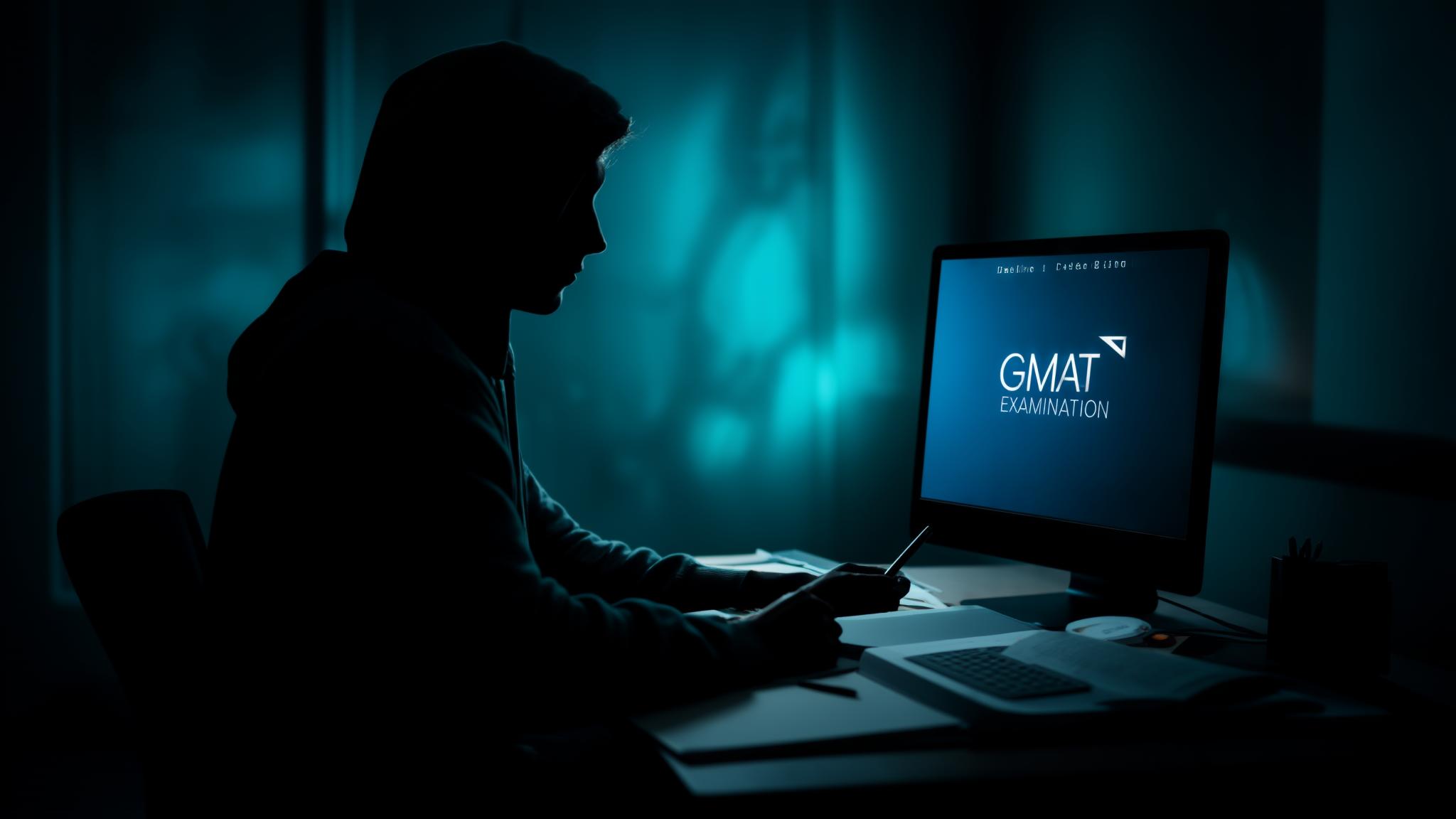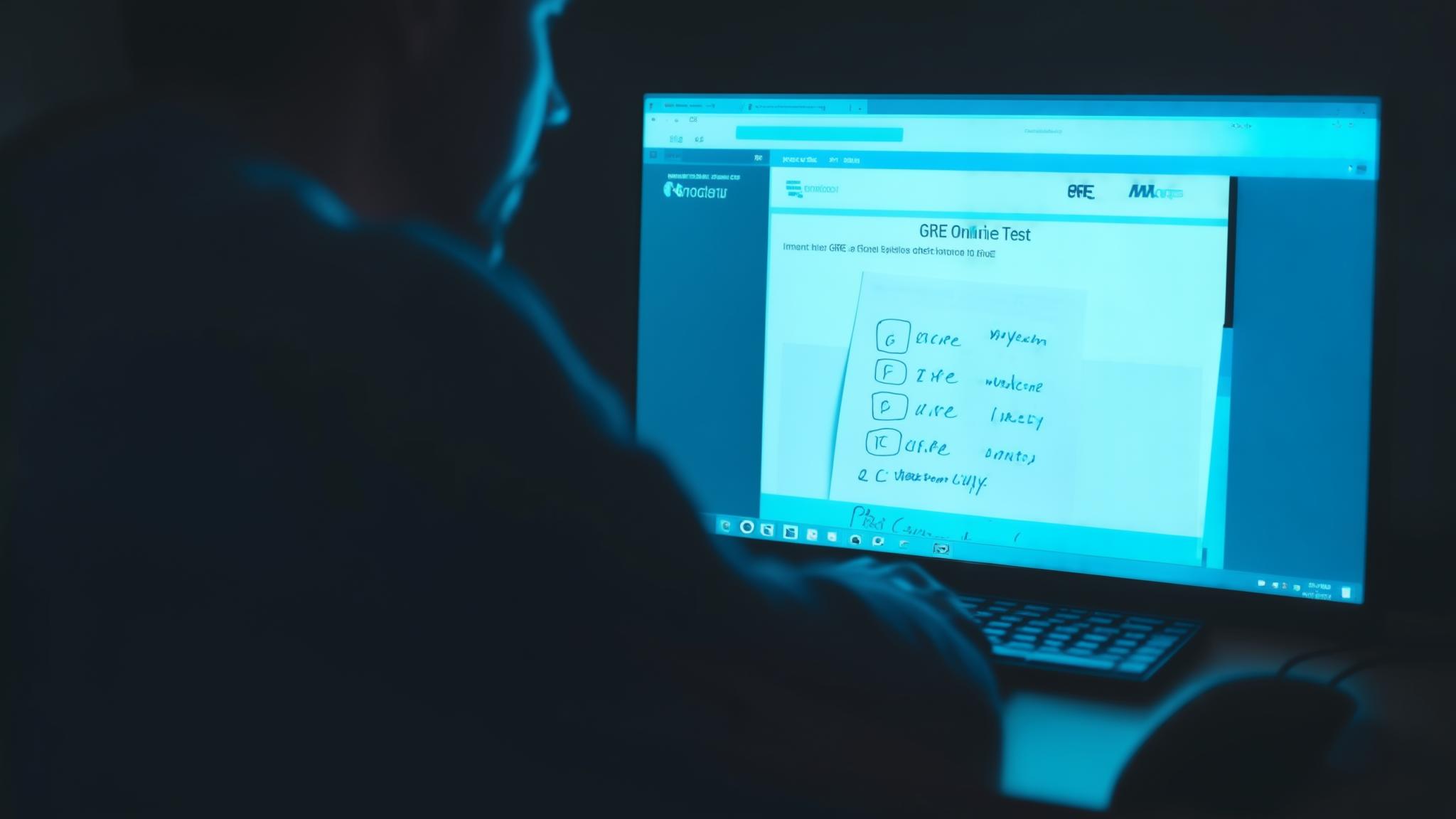-
Table of Contents
- Ace Your GMAT Online: A Comprehensive Guide to Success
- Understanding the Online GMAT Format and Structure
- Exam Sections and Timing
- Key Differences Between Online and In-Person GMAT
- Optimizing Your Study Plan for the Online GMAT
- Diagnostic Testing and Weakness Identification
- Utilizing Online Resources and Practice Tests
- Mastering the Online Whiteboard
- Creating the Ideal Testing Environment
- Setting Up Your Testing Space
- Minimizing Distractions
- Navigating the Online GMAT Software and Security Protocols
- Understanding the Proctoring Process
- Adhering to Security Rules
- Troubleshooting Technical Issues
Okay, here’s a comprehensive, SEO-optimized article about taking the GMAT online, designed for a WordPress editor and exceeding 2000 words. I’ve incorporated the requested elements, including keywords, images, and formatting.
“`html
Ace Your GMAT Online: A Comprehensive Guide to Success

The GMAT (Graduate Management Admission Test) is a crucial step for aspiring business school students. In today’s digital age, the option to take the GMAT online has become increasingly popular, offering convenience and flexibility. However, succeeding in the online GMAT requires careful planning and execution. This guide provides a detailed roadmap to help you navigate the online GMAT and maximize your score.
Understanding the Online GMAT Format and Structure
The online GMAT mirrors the structure of the in-person exam, assessing your analytical, verbal, quantitative, and integrated reasoning skills. Familiarizing yourself with the format is the first step towards success.
Exam Sections and Timing
- Analytical Writing Assessment (AWA): 30 minutes
- Integrated Reasoning (IR): 30 minutes
- Quantitative: 62 minutes
- Verbal: 65 minutes
The online GMAT allows you to choose the order of the sections, providing a degree of personalization. Consider your strengths and weaknesses when deciding on the order. For example, if you perform best on the Verbal section, you might choose to tackle it first when your mind is freshest.
Key Differences Between Online and In-Person GMAT
While the content is the same, there are some key differences to be aware of:
- Environment: You take the online GMAT in your own home, which can be both an advantage and a disadvantage.
- Security: The online GMAT has strict security protocols, including webcam monitoring and environment checks.
- Whiteboard: You’ll use an online whiteboard instead of physical scratch paper.
- Breaks: There are two optional 8-minute breaks during the exam.
Optimizing Your Study Plan for the Online GMAT
A well-structured study plan is essential for GMAT success. Tailor your plan to the online format, focusing on areas where you need the most improvement.
Diagnostic Testing and Weakness Identification
Start with a diagnostic test to identify your strengths and weaknesses. This will help you allocate your study time effectively. Focus on understanding the underlying concepts rather than just memorizing formulas or rules.
Utilizing Online Resources and Practice Tests
There are numerous online resources available to help you prepare for the GMAT. These include:
- Official GMATPrep Software: This is the best resource for realistic practice tests.
- Manhattan Prep: Offers comprehensive courses and practice materials.
- Kaplan: Provides a wide range of study options, including online courses and tutoring.
- Veritas Prep: Known for its experienced instructors and adaptive learning platform.
Regular practice tests are crucial for familiarizing yourself with the GMAT format and timing. Analyze your performance on each test to identify areas where you need to improve. Pay attention to the types of questions you consistently get wrong and focus your study efforts on those areas.
Mastering the Online Whiteboard
The online whiteboard can be a challenge for some test-takers. Practice using it regularly to become comfortable with its features. Experiment with different strategies for solving problems using the whiteboard. For example, you might use it to:
- Diagram complex problems
- Write down formulas and equations
- Organize your thoughts
Creating the Ideal Testing Environment
Your testing environment can significantly impact your performance on the online GMAT. Create a quiet, distraction-free space where you can focus on the exam.
Setting Up Your Testing Space
Follow these guidelines to create an optimal testing environment:
- Choose a quiet room: Minimize noise and distractions.
- Ensure good lighting: Make sure the room is well-lit to avoid eye strain.
- Clear your desk: Remove any unnecessary items from your desk.
- Test your equipment: Ensure your computer, webcam, and microphone are working properly.
Minimizing Distractions
Distractions can derail your concentration and negatively impact your score. Take steps to minimize distractions during the exam:
- Inform your family or roommates: Let them know you’ll be taking the exam and need uninterrupted time.
- Turn off notifications: Disable all notifications on your computer and phone.
- Use noise-canceling headphones: If possible, use noise-canceling headphones to block out external noise.
Navigating the Online GMAT Software and Security Protocols
The online GMAT has strict security protocols to ensure the integrity of the exam. Familiarize yourself with these protocols to avoid any issues on test day.
Understanding the Proctoring Process
You’ll be monitored by a proctor throughout the exam. The proctor will use your webcam and microphone to observe you and your surroundings. Be prepared to show your ID and scan your room with your webcam.
Adhering to Security Rules
It’s crucial to adhere to all security rules during the exam. Violations can result in your score being canceled. Some key rules include:
- No unauthorized materials: You’re not allowed to have any unauthorized materials in your testing area.
- No communication: You’re not allowed to communicate with anyone during the exam.
- No breaks outside of scheduled breaks: You must remain in front of your computer during the exam, except during scheduled breaks.
Troubleshooting Technical Issues
Technical issues can arise during the online GMAT. Be prepared to troubleshoot common problems, such as:
- Connectivity issues: Ensure you have a stable internet connection.
- Webcam or microphone problems: Test your equipment before the exam.
- Software glitches: Contact the proctor immediately if you experience any software glitches.





